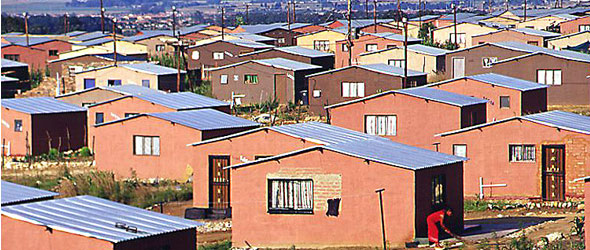Astonishingly, 17 years after the end of apartheid, millions of South African Blacks are deprived of the same home ownership rights as Whites, says my friend Leon Louw, director of the country’s Free Market Foundation.
They are the owners who received houses distributed to them under a government programme called RDP – about three million of them — which are subject to “racially discriminatory and pre-emptive conditions,” one of the commonest being an eight-year prohibition on selling or letting.
If an owner loses his job, he cannot move to another area to take a job there.
Experts and land audits suggest that between a half and three-quarters of all RDP and other houses in Black areas are not occupied by their registered owners.
Owners who can get jobs elsewhere are faced with an “intolerable choice… remain unemployed or abandon their most valuable asset.”
If they choose to abandon an RDP house, “it is reallocated to the next person on the waiting list (or, as some believe, the next person to pay a suitable bribe), and they never get another, regardless of how compelling their reason might be for leaving.”
They “have to choose between being housed or employed. If they choose to remain unemployed, they will probably lose their house anyway because they won’t be able to afford to maintain it or pay property taxes.”
Leon says “most Blacks ignore their lawful option and sell or let their RDP or other township house ‘informally.’ Since the law prevents them from having secure or tradeable title, they are forced to sell or let at massively discounted ‘black market’ prices.
“New occupiers live in a state of permanent fear that they might be caught and, with their belongings, summarily evicted on to the sidewalk.”
A common objection to giving Blacks full title to their homes is that they will dispose of them, pocket the cash, and become homeless again. But that objection is never raised to ownership by Whites.
Any owner, Black or White, may need money more than his house for a host of legitimate reasons, such as relocating to somewhere with better employment prospects, starting a small business, educating children, paying for healthcare.
Evidence is that when assets are freely tradeable, they move into the hands of those best able to make use of them.
“Apartheid tenure” should be scrapped, Leon says.
I see this as an interesting example of how well-intentioned regulation and control by bureaucrats often (usually?) results in unfair consequences far worse than if individuals were left free to make their own choices.
CopyRight – OnTarget 2011 by Martin Spring







